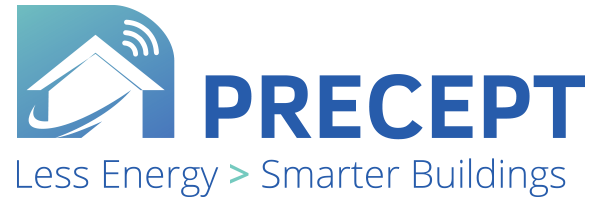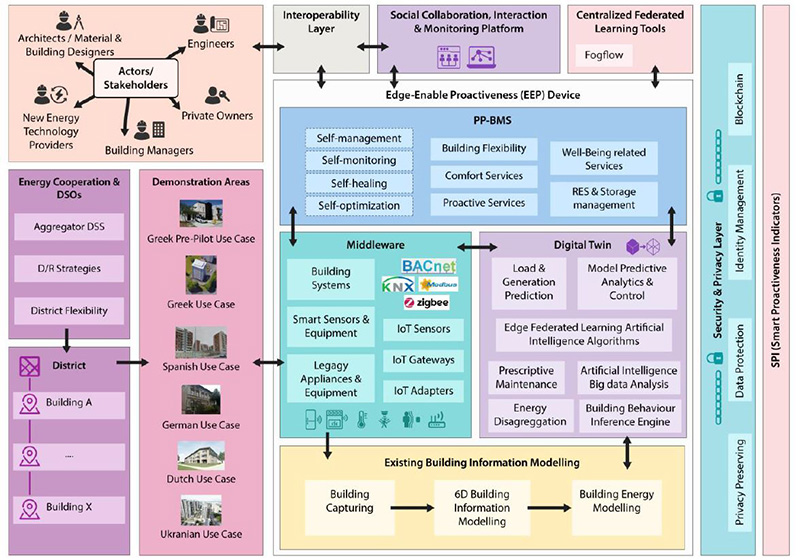Traditional residential buildings are reactive. They consume high energy, with elevated maintenance costs. In the majority of the cases, the RES are untapped, while the occupants’ well-being most of the time is not the proper one. Finally, their environmental footprint is very poor. PRECEPT vision is to enable the “smooth” and at almost zero operational costs transformation of traditional residential buildings to Pred(scr)ictive, Proactive Smart Residential Buildings.
The overall goal is to make the transformation of the buildings from reactive to proactive more attractive to stakeholders, more reliable, secured and cost-effective, environmentally friendly, and in line with grid needs, thus enabling the acceleration of building proactiveness transformation. PRECEPT’s ambition is to deliver the next-generation of Smart Home (IoT) industry.




